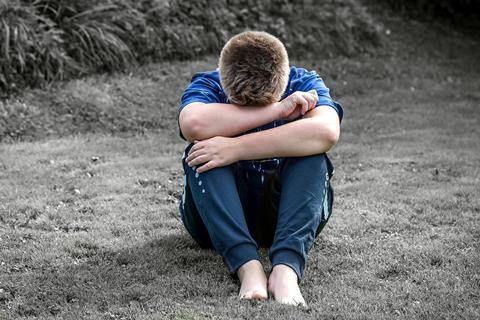Religious groups are failing children over sexual abuse, says a recent report. Justin Humphreys says it’s time for the Church to stop making excuses and take the needs of the most vulnerable more seriously. After all, it’s what Jesus commanded us to do

There are many important messages that we might take away from the recent publication of the Child Protection in Religious Organisations and Settings report by the Independent Inquiry into Child Sexual Abuse (IICSA). The report that drew on evidence gained from 38 different religious organisations (including Baptist, Methodist and independent evangelical churches) has presented us with a broad view of how child protection is approached.
This report reveals there is huge variation in both understanding and willingness to ensure children are protected from abuse of all kinds.
No room for complacency
The inquiry paints a clear picture of the desperate need for consistency in the application of accepted and understood standards that work together to protect children and young people. And while some Christians insist on saying the most entrenched difficulties in child protection are to be found within the Anglican and Catholic church traditions, there is no room for pointing the finger. While these traditions have faced the deepest and most intensive scrutiny, it would be wrong to assume that the difficulties that have been laid bare are unique to them.
There is no section of society that does not need to make more effort in preventing child abuse
For many years I have been saying to church leaders in many non-conformist denominations that there is no room for complacency - or any justification for saving their much-needed improvements for another day. The extensive evidence that I gave to the inquiry on behalf of Thirtyone:eight, which ran to hundreds of pages, made this point and highlighted the learning that we have gained from over 40 years of working in this area, supporting the mission and ministry of the Church across the UK and further afield. There is no section of the Church - or indeed society - that does not need to make proactive efforts in preventing and responding to child abuse.
Unequivocal
Despite this, there is still much squabbling and self-protective posturing taking place. A significant element of the findings from the inquiry related to the barriers that exist to reporting child abuse within religious organisations. Victim-blaming, inappropriate use of scripture, abuse of power by leaders, gender disparity in leadership, fear of reputational damage, and distorted teaching on forgiveness were all apparent and show the ugliest characteristics of self-protectionism. These issues are not only important in understanding the barriers to reporting but also, more broadly, to effectively creating safer places for all.
A theology that suggests any person can be unaccountable for their actions is wrong
When I reflect on Matthew 18:6: “If anyone causes one of these little ones—those who believe in me—to stumble, it would be better for them to have a large millstone hung around their neck and to be drowned in the depths of the sea”, I understand there to be an unequivocal statement that cannot fail to communicate the most serious of consequences to those who cause children to stumble. It doesn’t provide caveats or waivers. Jesus doesn’t debate the ins and outs of any given scenario. He is straight-talking and serious. These are some of the most hard-hitting words that Jesus ever spoke. Yet there are still those within the Church who seem unable to grasp this point, as the barriers that we have just considered show.
Fear of failure
Why is there any lack of clarity here? Perhaps we fear the intervention of statutory agencies and do not trust them sufficiently to work with them. Perhaps we are fearful that any suggestion that we have failed to adequately protect those within our care will somehow reflect badly upon our faith and the work of the gospel. Of course it is our failures - and not the message and work of the gospel that we are called to share - that causes harm. Maybe it is time to refocus our energies on those that Jesus himself regarded as the most significant in the kingdom of God: children, not us!
A theology that suggests any person should be untouchable and unaccountable for their actions is wrong. Why? Because we are fallible human beings who, without God, are incapable of keeping ourselves from sin – both sins of commission and sins of omission. A theology that suggests leaders should be free to wield power rather than share it and give it away will equally lead to the harm and abuse of those who are under the care of such leaders. Why? Because selfish power corrupts. A theology that imposes an instruction to ‘forgive and move on’ when harm and abuse has been suffered will only cause more harm. Why? Because it fails to acknowledge the depth of the wounds that are caused (physically, emotionally and spiritually) and serves only to prevent their healing and the pursuit of wholeness.
Imitating Christ
The Church should be a community where wholeness, growth and flourishing are part of the very DNA of our relationships. Any actions that work counter to this cannot be allowed to be a part of how the body behaves. As leaders, we must be humble enough to not only allow but welcome challenge. As members of the church community, we must be prepared to bring that challenge for the good of all. One cannot survive and thrive without the other.
I long and pray for a Church that is genuine in its desire to be humble, open, accountable and prepared to put the needs of others (especially children) before their own, just as Paul encouraged the church in Philippi to do in Philippians 2:1-11. Let’s start now!




































